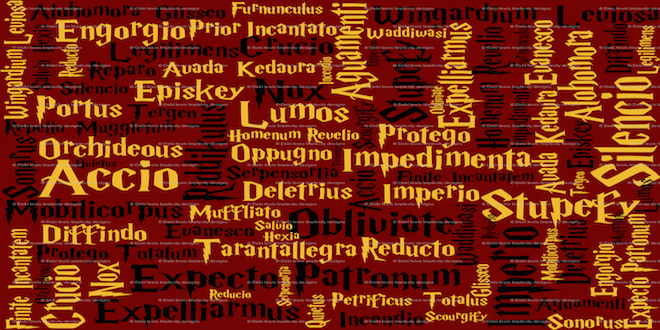
Why Are Spells Spoken in Latin? 3 Latin Spells to Try
Latin, the ancient tongue of the Romans, has always carried with it an aura of mystery, power, and sophistication. In the realm of magic and esoteric practices, Latin spells hold a significant place due to their history, potency, and the belief that this classical language can tap into the ancient powers. Let's delve into the fascinating world of Latin spells, understand their significance, and explore three powerful examples.

Why Are Spells Spoken in Latin?
The use of Latin in spellwork is deeply rooted in history and the collective consciousness surrounding the esoteric and the divine. Latin, being the liturgical language of the Roman Catholic Church for centuries, was associated with rituals, ceremonies, and scholarly pursuits. Because of this historical precedent, Latin came to be seen as a powerful conduit for the divine, enhancing the efficacy of religious and magical rites.
Additionally, the perceived potency of Latin spells lies in the language's status as "dead" or non-evolving. Without everyday vernacular use, Latin maintains its purity and consistency over time. This stability ensures that the words' meanings don't shift or dilute, preserving the original intent and power of ancient incantations. As a result, many occultists and spellcasters believe that voicing spells in Latin connects them to an unbroken lineage of ancient wisdom and power, making their rituals more impactful and authentic.
The Power of Latin in Spellcasting
Latin, for many occult practitioners, is the preferred language for spells and incantations. Its ancient origin and the fact that it's considered a "dead" language (i.e., not spoken as a native tongue anymore) lend it a special kind of power. Speaking in Latin is believed to invoke the ancient energies and resonate with the forces beyond our comprehension.
Moreover, Latin's precise and structured nature makes it less prone to misunderstandings or ambiguities, which is crucial when dealing with spellwork where intentions and words must be clear.
Examples of Latin Spells
1. Protection Spell
“Protegat et servet me, ab omni malo defendat me.” Translation: "Protect and keep me, defend me from all evil."
This spell is a plea for protection and safety. When recited, it calls upon higher powers to shield the invoker from harm and negative influences. One might imagine a protective barrier forming around them, reinforced with each repetition.
2. Love Attraction Spell
“Amorem meum ad me trahere, cor eorum vinculum meum sit.” Translation: "Draw my love towards me, let their heart be bound to mine."
This is a spell for attracting love and forming a strong bond with a desired individual. Remember, it's crucial to use such spells responsibly and never against someone's free will. The focus should be on attracting genuine love and connection.
3. Healing Spell
“Sanitas corpus et animam, purgat omnis infirmitas et dolor.” Translation: "Heal the body and soul, cleanse all weakness and pain."
This Latin incantation calls for healing energies to mend physical ailments and emotional distress. When chanted, it's beneficial to visualize a soothing light enveloping the afflicted area or person, driving away pain and discomfort.
Are Harry Potter Spells Latin?

Many of the spells in J.K. Rowling's "Harry Potter" series are indeed inspired by Latin words and phrases. Rowling, having studied classics in her academic pursuits, infused her magical world with Latin-based incantations. While not all spells in the series are purely Latin, many, like "Lumos" (from Latin "lumen" meaning "light") and "Expecto Patronum" (loosely translating to "I await a protector"), derive from Latin roots, adding an aura of ancient mystique to the wizarding world.
Conclusion
Latin spells, with their rich history and potent resonance, offer a unique bridge to the ancient world and its mysteries. Whether seeking protection, love, or healing, these spells in the classic tongue provide a profound connection to the intentions they represent. As with any esoteric practice, it's vital to approach with respect, understanding, and responsibility.
